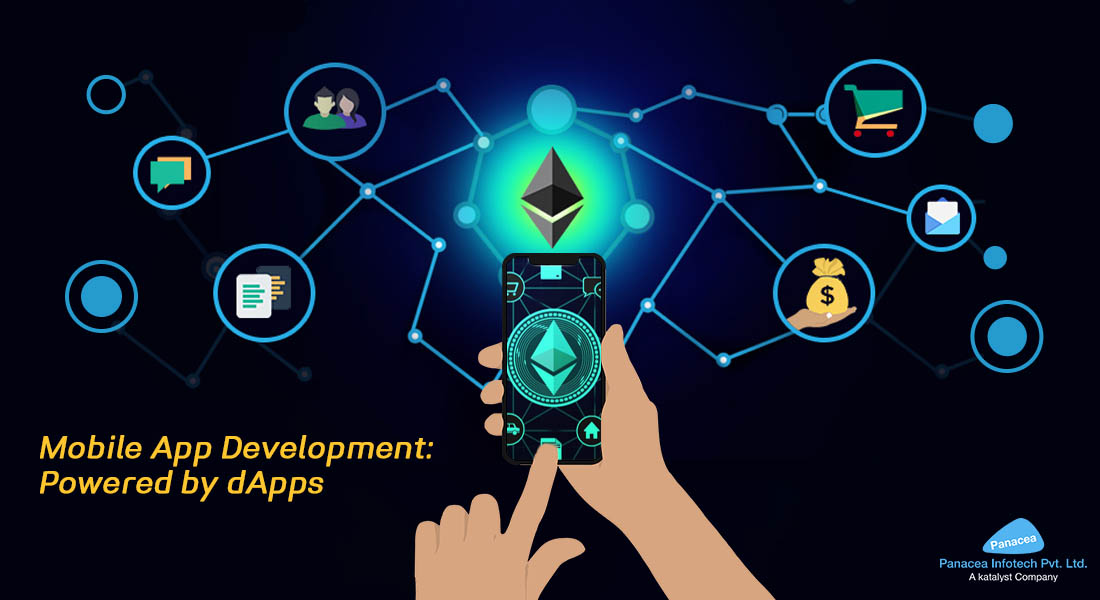Peer-to-peer networking can be a new way to manage applications. Most online users are familiar with ‘applications’ that refer to software applications that define a specific goal. Unlike popular centralized software models, decentralized applications offer smoother and faster operations, also free of centralization.
dApps, also known as decentralized apps are applications whose client-server models are decentralized, and the technology, which it functions, is termed as blockchain. Such applications are known for their distributed, transparent, and flexible functionality, having a better structure compared to the current model. dApps has already entered several sectors, such as health, education, real estate, and legal, and this will soon have a significant impact on the entire economy around mobile app development activities.
How dApps Can Revolutionize Mobile App Development?
dApps are sure to have a significant impact on the mobile app industry, as they are a better way to protect against cyberattacks than any other recent technology due to distributed architecture.
It has the potential to eliminate the various online payment methods that today are cumbersome, slow, expensive, and are less secure. When transactions are evident in the ledger of distribution for iOS or Android will be much simpler, more secure, and considerably faster.
Greater security
The nature of decentralized applications offers a higher level of protection, and since a dApps still supports distributed logging, attacking the network is often expensive and naturally increases security.
Unprecedented transparency
Transactions that take place with the help of distributed architecture or information logs are easy to verify.
Further, moving ahead with thought of, what is the future of dApps in the coming period.
The future of DApps
With blockchain technology evolving rapidly, mobile application developers can now create more user-friendly and useful applications in that framework. If the underlying technology at dApps is implemented correctly, it will undoubtedly open up new avenues for profitability and collaboration. It has changed existing mobile business models to focus on the customer and respect users’ privacy.
Penetration of dApps so far
The biggest category dominated by dApps is gaming, which shouldn’t be a surprising factor looking at the CryptoKitties blockbusters in the previous year. Until now, there are around 478 dApp games and more than 29,000 apps, but the most popular category is data storage, with projects like the X Cloud and StorJ fetching around 106,420 users per month.
Looking at the pace of technological advancements, it is predicted that dApps would have some more industries to serve owing to its transparent operational capabilities. It is seen that the revenue of dApps majorly depends on the online purchase through ecommerce platforms made by the end-users. Thanks to peer-to-peer functionality, the obligation of centralized and third party banks is eliminated.
Tools and Technologies Used for Dapp Development
Certain information and protocols are stored on the blockchain and protected by encryption. Decentralized applications are generally open sources and have an algorithm that provides for general network governance.
Developers deployed for dApps development code using smart contract programming languages such as C#, C++, SQL, JavaScript, and others. These languages are used in conventional app development. However, if the application is more attributed to blockchain functionalities, other languages such as Bitcoin Script, Solidity, and Ethereum come into action. The overall process of app development in the case of Dapp is not identical to the conventional app.
To the point,
dApps is already at the edge to dive into the mobile app development industry. With its convenient characteristics such as ease in payment, scalability, flexibility, and most important transparency, it is poised to dominate some of the major industrial segments such as transportation, healthcare, and deeply in ecommerce.
Before it takes a big chunk in the app economy, end users will have to adapt to the way it operates.
Hence, before getting started with decentralized app development also consider market analysis that paves your business growth. As this type of mobile app requires some basic infrastructure as foundation stones, planning according will help you hit the right spot the app-based business.
Panacea Infotech is a leading mobile app development company with an immense industry experience in serving various domains and verticals.
Connect with us!

